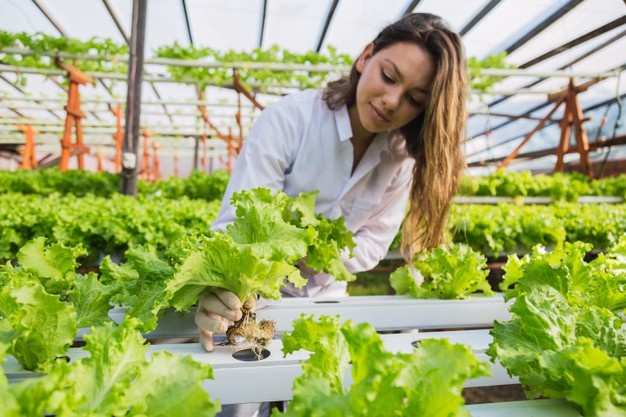Why you should apply for Vertical Farming jobs?
The Future of Agriculture and Why it is Important to Apply for Vertical Farming Jobs
Agriculture has been one of the most important industries in human history, and yet it is also one of the most dangerous with the risk of a world shortage. Vertical farming offers a new approach to agriculture by focusing on sustainable practices and cutting-edge technology.
Vertical farming is a promising solution to many of the current problems that exist with the process of modern-day agriculture. This method has also become a popular job opportunity for people who want to be involved in this industry.
The benefits of vertical farming are: it reduces energy usage, lower water usage, and transportation costs, reduces pesticide and herbicide use, and maximizes the amount of food grown in a small space.
There are a number of careers that go hand in hand with vertical farming such as engineering, design, marketing, and agricultural science and technology.
What are the Benefits of a Vertical Farm Career?
Vertical farming is not just a means of growing food, but a commitment to life quality, sustainability, and improved health for both ourselves and our planet. It has been proven to be more effective at conserving resources, maintaining optimal ecosystems, and producing abundant yields.
Vertical farms are highly integrated with technology to ensure efficiency and sustainability. A vertical farm’s AI writing assistant integrates different technologies like sensors, IoT devices, drones, data analytics, machine learning models etc.
There are many benefits to a career in vertical farming. For example, the air quality is better because the farms are contained and there is more space for growing crops. There is also lower water usage because they use hydroponics instead of soil. This means that there will be less runoff into waterways, which will reduce the number of harmful chemicals that end up in our water supply.
What Types of Jobs Can You Expect in a Vertical Farm?
The jobs at these Vertical Farming facilities vary depending on the size of the farm, but typically employees work as engineers, technicians, managers, scientists and coordinators. There are positions for people who want to do physical labor, work on the business side, or be involved in research and development. The more you learn about this industry, the more opportunities there are for you to find a position that suits your skillsets and passions. To extend your Skills, check out the CareerPath.
How Does Working in a Vertical Farm Differ from Traditional Agriculture?
The advantages of working in a vertical farm are that they reduce water usage, use less land, and help to address climate change. The disadvantages are the potential for increased food prices, the need for more labor, and the possibility of decreased food security.
How does working in a vertical farm differ from traditional agriculture? The biggest difference is that there is no need to use pesticides or other harmful chemicals to grow food. Instead, crop rotation is used as a way to control pests and weeds. The way employees work with plants and crops is different compared to traditional farming, as no pesticides or herbicides are used in a CEA, controlled environmental agriculture, there is no chemical danger which could affect the worker.
In controlled environments, workers wear protective suits to avoid contamination or hazards to the crops.
Hazards to plants can arise from a wide range of sources including dirt from the ground, bacteria from farm workers, chemicals hazards in the nutrient medium and water, as well as post-farm handling activities that include sorting, trimming, and transportation.
How Will Career Opportunities Change in the Future?
It’s now common knowledge that many jobs in the future will be scarce and will require a high level of education. For every job that becomes obsolete, there are bound to be several more demanding positions that can’t be done by anyone without an advanced degree. This means that there are many people out there who are vying for jobs in this competitive job market. Many of these jobs require a certain education level, so people with lower educational backgrounds will have to work harder in order to get a job which pays well.
The good news about vertical farming is that it will create many new jobs in the near future, including data analysts, research assistants, database architects, food scientists, and more. With these new jobs the skillsets of this workforce will quickly evolve entirely
The agricultural industry has undergone major changes in recent years, due to shifts in technology. Traditional jobs like farming and trucking are becoming obsolete, due to machine-learning and automation of farming.
Machine learning has opened up new possibilities for the agricultural industry. AI is, for example, being used to create detailed 3D models of crops so that farmers can monitor their fields and make better decisions about irrigation. It’s also being used to monitor water levels and crop yield. The benefits of these technologies are starting to be seen by the average farmer, who now has access to data about their crops which they
Conclusion:
It is important to apply for these positions so that you are able to take advantage of the new opportunities being offered to you. These jobs require applicants with a strong knowledge base in science and technology, so please consider applying today.

